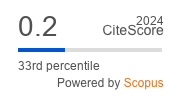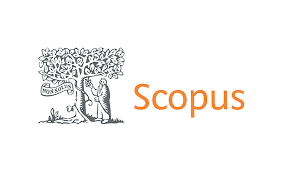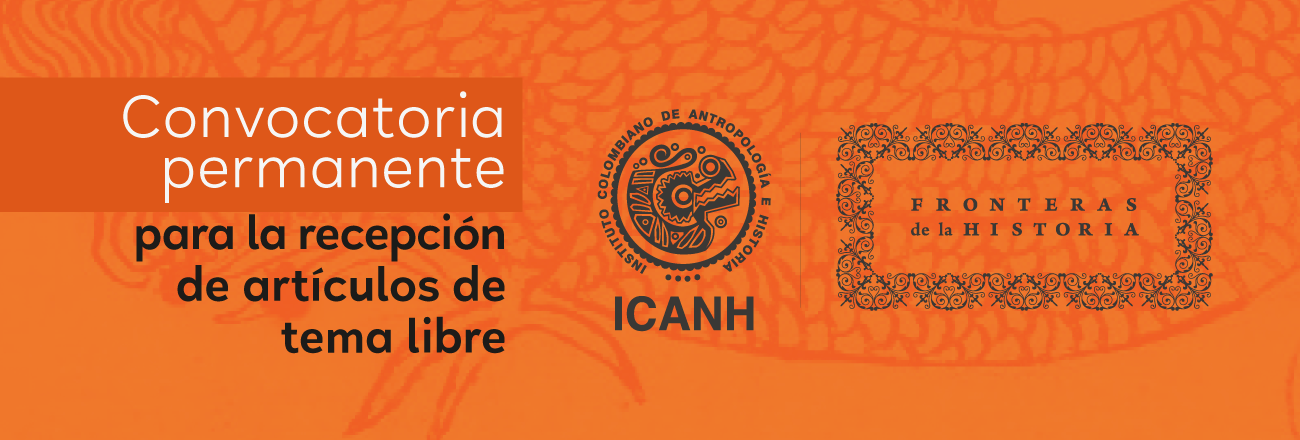“I do not ask God anything else but to take my life before I see the patriots.” Religion and fear: the emotions of the last realist defenders (1818-1822)
Abstract
The royalist resistance, which has existed in Chile since 1818-1822, is a process little examined in Chilean historiography. The importance of this post-independence period has typically been centered on the government of Bernardo O’Higgins. Less well-known are the impact of the royalist resistance at the national level, as well as the emotions of these men andwomen who defended the last vestiges of the Monarchy in South America. This article examines fear as the most important emotion felt by the men and women of the resistance, a fear which was highly inflected with Christian ideas and meanings. The article first describes the security that Christianity provided to faithful royalists. Furthermore, it explores the divine fear that they suffered from two perspectives: on the one hand, a fear which was associated with patriots as heretics and enemies of the Monarchy and the Christian religion and, on the other hand, an internal and personal fear of betraying the political system as understood to be elaborated by God
Downloads
References
Fuentes Primarias
Archivo Bernardo O’Higgins:
Volumen XII
Archivo Nacional Histórico de Chile (ANHcH)
Fondo Ministerio de Guerra:
Volumen 52
Volumen 101
Volumen 16
Fondo Intendencia de Concepción
Volumen 6
Volumen 33
Fuentes Impresas
Bladh, C.D. (1951): La República de Chile. Santiago de
Chile, Imprenta universitaria.
Coffin, J. (1898): Diario de un joven norte-americano:
detenido en Chiloé durante el periodo revolucionario de
-1819. Santiago de Chile, Impr. Elzeviriana.
Puigmal, P. (2005): Memorias de Jorge Beauchef. Santiago,
Centro de Investigaciones Diego Barros Arana.
Bibliografía
Barros Arana, D. (1850): Estudios Históricos sobre Vicente Benavides y las campañas del sur.1818-1822. Santiago, Impr. De Julio Belin y compañía.
Barros Arana, D. (1892): Historia Jeneral de Chile, Tomo XIII. Santiago, Rafael Jover Editor.
Bauman, Z. (2008): Miedo Líquido. La sociedad contemporánea y sus temores. Buenos Aires, Paidos.
Bengoa, J. (1985): Historia del Pueblo Mapuche. Santiago, Ediciones sur. Colección estudios históricos.
Collier, S. (1977): Ideas y política de la Independencia Chilena, 1808-1833. Santiago, Editorial Andrés Bello.
Contador, A. (1998): Los Pincheira: un caso de bandidaje social: Chile 1817-1832. Santiago, Bravo y Allende editores.
Cornejo, M y X. Faúndez (2010): “Aproximaciones al estudio de la transmisión transgeneracional del trauma psicosocial”. En Revista de Psicología, 19 (2), pp. 31-54.
Delumeau, J. (2002): “Miedos de ayer y de hoy”. En Villa Martínez, M. I., ed., El miedo. Reflexiones sobre su dimensión Social y Cultural. Medellín, Corporación Región, pp. 9-21
Domínguez, V. (2003): “El Miedo en Aristóteles”. En Psicothema, 15 (4), pp. 662-666.
Hobsbawm, E. (2001a): Bandidos. Barcelona, Editorial Crítica.
Hobsbawm, E. (2001b): Rebeldes Primitivos. Estudio sobre las formas arcaicas de los movimientos sociales en los siglos XIX y XX. Barcelona, Crítica.
Korstanje, M. (2011): “La Fobología, ¿Ciencia o forma de entretenimiento?”, Nómadas. Revista crítica de Ciencias Sociales y Jurídicas, Universidad complutense, 31 (3), 16 pp.
León, L. (2010): Ni patriotas ni realistas. El bajo pueblo durante la Independencia de Chile. Santiago, Universidad de Chile.
Mestre, P. (2011): “El documento de la Proclama durante la Guerra de la Independencia: instrumento de adhesión patriótica y exaltación de la nación española”. En F, Iñesta y F, Mateos, coord. España, Nación y Constitución y otros estudios sobre Extremadura. Llerena, Sociedad Extremeña de Historia, pp. 105-115.
Moraña, M. (2012): “Postcriptum. El afecto en la caja de herramientas”. En M. Moraña y I. Sánchez, ed., El lenguaje de las emociones. Afecto y cultura en América Latina. Madrid, Editorial Iberoamericana, pp. 313-337.
Page, C. (2004): “Las proclamaciones reales en Córdoba del Tucumán”. Revista Complutense de Historia de América, 30, pp. 77-94.
Philippe, R. (2006): “Seguridad objetiva y seguridad subjetiva”. Revista Catalana de Seguretat Pública, 16, pp. 91-102.
Plamper, J. (2014): Historia de las Emociones: Caminos y retos. London, Goldsmiths.
Salazar, G. (2011) Construcción del Estado en Chile. (1800-1837) Democracia de los pueblos, militarismo ciudadano, golpismo oligárquico. Santiago, Editorial Sudamericana.
Timmermann, F. (2005): El factor Pinochet: Dispositivos de poder- Legitimación- Elites. Chile, 1973-1980. Santiago, Ediciones Universidad Católica Silva Henríquez.
Timmermann, F. (2015): El Gran Terror. Miedo, emoción y discurso. Chile, 1973-1980. Santiago, Ediciones Copygraph.
Vicuña Mackenna, B. (1972): La Guerra a Muerte, Santiago, Editorial Francisco de Aguirre.

Esta obra está bajo licencia internacional Creative Commons Reconocimiento-NoComercial-CompartirIgual 4.0.









_18.09_.00_1.png)


















